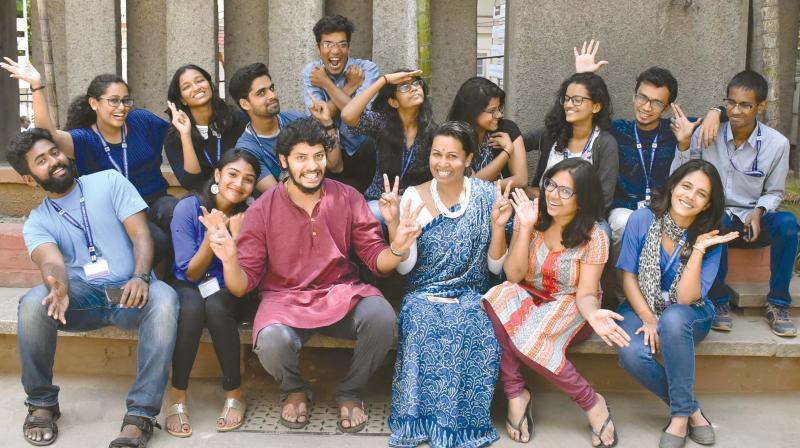Mind over concerning matters

Reports of suicide have become a common occurrence; so much so that the response to it is also parroted with an ethical paradox of sympathy and incomprehension. The recent report of a 21-year-old student residing in RR Nagar, who committed suicide, also met with similar emotions of angst and concern. With the most recent case of another girl committing suicide because of an innane hair treatment gone wrong, the focus is back on prevention.
Parallely, a study by The Lancet states that suicide deaths in India are among the highest in the world. A large portion of adult suicides occur between the ages of 19 to 29 years, an age group we can safely categorise as students.
Stating the reasons for the increase in mental health issues that lead to suicide, Roopesh BN, a professor at the department of clinical psychology at Nimhans, says that today’s generation is very sensitive and intolerant to rejection and failure, “Another reason can be the fact that youngsters today have a very superficial relationship with their families and friends. However, it is never one reason why they opt to such drastic measures. When they are faced with a challenge or an obstacle, they feel very helpless and don’t know whom to turn to. Regardless of the reason or the numbers, the fact that there are people out there who want to end their lives, is a call for us to reach out and help.”
Focusing on the importance of mental health in schools and colleges we talk to counsellors and psychologists about the need to spread awareness and take initiatives to prevent such extreme measures.
Neeta Pereira, a counsellor and professor at St Joseph’s College, emphasises on the importance of removing the stigma associated to mental health issues. She says, “As important as it is to be available for anybody who seeks help, it is also essential for us to remove the stigma associated to mental health issues. People are scared to talk about their problems due to the fear of being judged and isolated. We have students in our college who understand the need to eliminate the same. They organise flash mobs, small skits and dance performances within the campus, with a positive message about mental health, to make the students more comfortable with approaching us. To make them aware of the fact that there are people they can reach out to.”
To be able to cater to the needs of hundreds and thousands of students with a limited staff is a task that almost seems impossible. Tacking the problem effectively, St Joseph’s college and Christ college have a peer support group within the campus.
Elaborating on the group, Aneesh Kumar, an assistant professor of psychology in Christ College, says, “In our college we have a peer support group, consisting of students, whom we train to be able to reach out to other students who seek help. It is also easier for the students to approach their peers when compared to approaching counsellors/teachers. The process is done with the supervision of counsellors and psychologists. We also provide platforms for students to take part in various activities that keep them engaged and allow them the chance to interact with other students whom they can confide in.”
Hamsa Nataraj, Head of Department of psychology in Mount Carmel College, shares about the initiatives taken by the college to tackle issues related to mental health. She says, “Suicide is mostly an impulsive behaviour. It is hard for us to be able to predict or take preventive measures. But there are certain symptoms that students do show from which we can identify that something isn’t right. When we see such behaviour, the mentors and counsellors in campus do reach out to students. Once a year we have a suicide prevention talk that is given by visiting psychiatrists to provide help lines and spread awareness among the students.”

